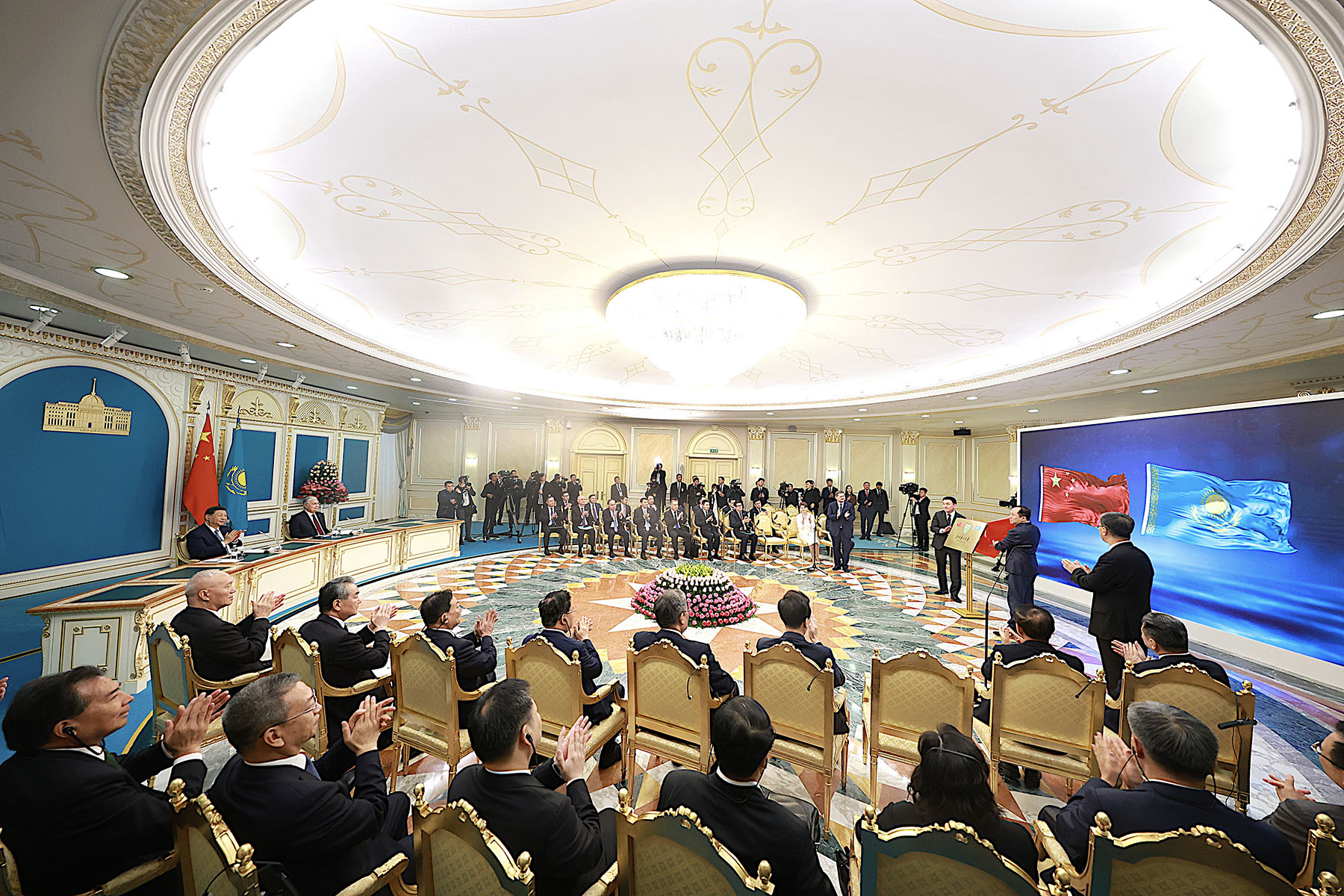
Damir Karageneyev, who is from Kazakhstan, has just graduated from Beijing Language and Culture University after four years of studying international relations.
The 22-year-old plans to take the civil service exam for Kazakhstan's Ministry of Foreign Affairs when he returns to his home country.
READ MORE: Ties to deepen, get broader scope
"China attracted me with its time-honored history and cultural diversity. My curiosity drove me to study in the country," Karageneyev said.
As a leading university in Chinese language and culture, BLCU offered him a platform to better understand China, and this has been helpful to his career development, he added.
During his undergraduate studies, his impressions of China grew from seeing it as a populous country with a rapidly growing economy to taking in a broader picture whose scope ranged from traditional arts to modern technology.
"I'm fascinated by the traditional culture and historical heritage in China, such as the Great Wall and the Forbidden City. Moreover, I found that China has made huge progress in scientific and technological innovation," Karageneyev said.
Currently, 60 Kazakh students are enrolled at BLCU, with the majority pursuing undergraduate programs in majors such as Chinese language and international economics and trade.
As of this month, a total of 4,680 Kazakhs have studied at BLCU, including Kazakh President Kassym-Jomart Tokayev, who learned Chinese at the university in 1983 and 1984.
Doctoral candidate Duisenbay Kulpynay has been involved in the China Studies Program at BLCU for three years and is dedicated to teaching Chinese to speakers of other languages. The Sinologist is also a lecturer in Chinese language education at Al-Farabi Kazakh National University in Almaty.
Kulpynay said she has collaborated with some Chinese higher education institutes, and has guided Kazakh students in the Chinese Bridge, a Chinese proficiency competition for foreign students.
"As educators of Chinese language, if we want to tell China's story well in Kazakhstan, it is essential to have a comprehensive understanding of every aspect of Chinese culture," Kulpynay said.
She noted that she is working on the localization of Chinese language textbooks in her home country to enhance Kazakhs' understanding of Chinese culture, and is planning to summarize a set of principles and methods for compiling localized Chinese teaching materials.
During the summer vacation, about 40 Kazakh students will visit China and attend summer camp programs or Chinese language courses at BLCU, according to the university.
Astana campus
While Kazakh students are coming to China for a deeper and firsthand understanding of the country, educational ties have been strengthened through a new higher education institute jointly established by BLCU and Astana International University.
The inauguration ceremony for BLCU's branch campus in Kazakhstan was held on Wednesday in Astana.
Duan Peng, president of BLCU, said that with significant interest seen in admission and registration, the branch campus is scheduled to start its first semester in early September.
ALSO READ: Ties with SCO partners praised
BLCU Kazakhstan will provide high-quality education while training local Chinese language teachers and developing teaching materials in Kazakhstan, aiming to support Chinese language education in the country's primary and secondary schools, Duan said in a written interview with China Daily.
The Chinese teaching materials that will be used on the branch campus in Kazakhstan are provided by BLCU Press and its branch in the United States, and have been delivered to the new branch campus, he said.
The branch campus will launch joint training programs, enabling students to study in both countries and experience different educational and cultural environments, he said.


